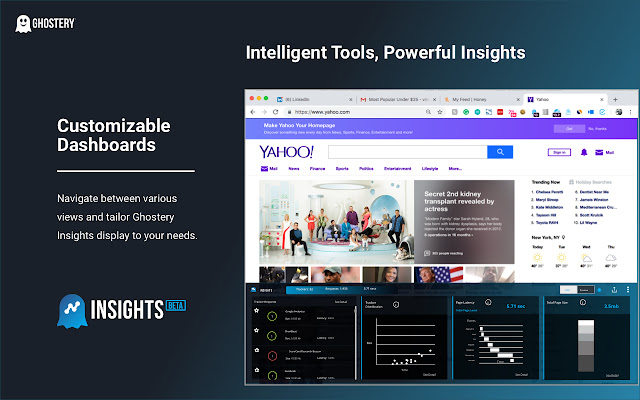2025-06-25

What is the Evaluation Criteria for a Prop Firm Account?
Ever wondered how traders get that golden ticket into a proprietary trading firm? Or what hoops they need to jump through to prove they’ve got what it takes? If you’re eyeing the world of prop trading—be it forex, stocks, crypto, or commodities—you know it’s a game of skill, discipline, and strategy, but how do firms actually decide who’s good enough? Let’s unpack what evaluation criteria really mean when it comes to snagging a prop firm account. Think of it as the trader’s audition—except instead of singing, you’re showcasing your trading chops.
The Core of Prop Firm Evaluation: Performance Under Pressure
When a prop firm evaluates a trader’s account, they’re mainly looking at how well you can handle real-world trading scenarios. It’s not just about hitting high returns; it’s about doing so consistently, safely, and within rules. Imagine your portfolio as a marathon runner’s stamina—speed’s great, but steady pacing wins the race. The firm wants to see if you can grow your account without taking reckless risks or blowing it up. Some firms have a maximum drawdown limit, like a safety net, to ensure you can keep your trading within manageable risk levels.
For example, in the forex world, this might mean sticking to a daily loss limit—say, not losing more than 2% of your account—and sticking to it even when the market gets wild. A trader with a record of controlled, yet steady gains is more likely to get their shot.
Skill in Risk Management & Consistency
Risk management stands out as the kingpin in any evaluation. Think of it as the trader’s insurance policy—without it, a bad trade can wipe out your entire account. Prop firms favor traders who can master position sizing, set appropriate stop losses, and adapt quickly to market shifts. For instance, if youre trading crypto, volatile swings can be devastating if you’re unprepared. Firms love traders who demonstrate discipline with risk, even during turbulent times, rather than those chasing quick gains and ignoring potential pitfalls.
Consistency over time often weighs equally, if not more, than big wins. A trader who quietly grows their account with small, calculated wins—day after day—displays the mindset of a professional, and firms notice that.
Trading Style & Asset Diversity
Most evaluation criteria also consider trading style—are you a scalper, swing trader, or long-term strategist? Different firms have varied preferences, but adaptability matters. For instance, a trader with experience in multiple assets—forex, stocks, commodities, crypto—shows versatility that can be more appealing given today’s multi-asset environment.
With the rise of decentralized finance and AI-driven trading, firms are increasingly valuing traders who are familiar with digital assets and cutting-edge tech. A trader capable of navigating both traditional and emerging markets demonstrates forward-thinking, a key trait in this rapidly evolving industry.
Technical Skills & Market Understanding
Beyond execution, firms want to see traders who understand market fundamentals. Can you read economic indicators, interpret news catalysts, and recognize market sentiment? For example, during a volatile earnings season, knowing when to hold back or capitalize on trends can make a difference. Traders who display sharp technical analysis—using charts, patterns, and indicators—are often seen as more prepared to handle unpredictable market moves.
Adaptability to Regulations & Technology
In the age of increasingly complex regulation and technology, evaluation also includes your ability to keep up. This could mean familiarity with trading platforms, APIs, or even the latest in decentralized finance and blockchain tech. Smart contracts and AI are revolutionizing trading—those who stay ahead are the ones who thrive despite regulatory hurdles and market chaos.
Future Outlook: Prop Trading in the Age of Innovation
Where’s prop trading headed? Many see a future intertwining with decentralized finance, automation, and AI. Imagine executing trades via smart contracts, managing multiple assets seamlessly, and leveraging AI to identify patterns faster than any human. Prop firms that adapt to these trends—embracing transparency, security, and cutting-edge tools—will find themselves ahead.
However, the journey isn’t without hurdles. Regulation around crypto and DeFi is tightening, and ensuring security and compliance becomes paramount. Still, the potential for profit and growth in these sectors is immense, particularly for traders skilled at navigating the new landscape with a strategic mind.
A New Era of Prop Trading: Why It’s Still About Skill
In the end, prop firms are looking for traders who can blend skill, discipline, innovation, and adaptability. If you’re aiming for that coveted account, focus on mastering risk management, diversifying your trading assets, honing your technical and fundamental analysis, and staying curious about emerging tech like AI and blockchain.
The key message? Think of prop trading as an art form—balancing risk with opportunity, precision with innovation. With the right evaluation criteria in hand, you can turn your trading passion into a career that’s both lucrative and exciting. Embrace the challenge—your future in prop trading is waiting, and the potential is limitless.
Trade smart, stay curious, and keep pushing the boundaries—because in this game, mastery opens doors.






